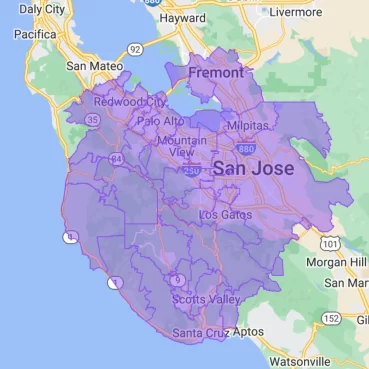Emergencies come in many forms—whether it's a break-in, fire, natural disaster, or another unexpected event, businesses must be prepared to respond swiftly and effectively. Having a robust security system is critical to safeguarding your assets, employees, and customers during emergencies. Beyond the daily protection they offer, modern security systems play a pivotal role in helping businesses respond to crises. In this article, we’ll explore how a comprehensive security system can help prepare your business for various emergency scenarios.
1. Protecting Against Break-ins and Theft
Break-ins and theft are common threats to businesses, especially during off-hours. A well-designed security system can prevent these incidents from occurring or help mitigate their impact.
How a Security System Helps:
- 24/7 Surveillance: Security cameras provide round-the-clock monitoring, deterring criminals and capturing evidence if a break-in occurs.
- Alarm Systems: Burglar alarms, motion detectors, and door/window sensors notify you and law enforcement instantly when unauthorized access is detected.
- Remote Monitoring: With remote access to your security system, you can check your premises in real-time, no matter where you are.
Best Practices:
- Ensure all entry points are covered by cameras and sensors.
- Use motion detectors in areas where valuable equipment or inventory is stored.
- Install a monitored alarm system that connects to a security service or local authorities.
2. Responding to Fire and Smoke Emergencies
Fires can devastate a business, leading to property damage, financial losses, and, in the worst cases, endangering lives. Integrating fire and smoke detection systems into your security setup is crucial for early detection and swift action.
How a Security System Helps:
- Smoke and Fire Detectors: Modern security systems can be integrated with smoke and fire detectors that trigger alarms and notify emergency services immediately.
- Automatic Alerts: In the event of fire detection, the system can send instant notifications to key personnel, ensuring a quick response.
- Building Access Control: Automated access control systems can facilitate safe evacuation by unlocking doors and guiding employees and customers to exits.
Best Practices:
- Regularly maintain smoke and fire detectors to ensure they are working properly.
- Incorporate fire alarms with loud sirens and strobe lights to ensure everyone is alerted.
- Create a clear evacuation plan and train employees on emergency procedures.
3. Handling Natural Disasters
Natural disasters such as earthquakes, floods, and severe storms can disrupt business operations and endanger both property and people. A robust security system helps mitigate the risks associated with natural disasters by enhancing communication and preparedness.
How a Security System Helps:
- Environmental Sensors: Some advanced systems include sensors that detect environmental changes like flooding or extreme temperatures, alerting you to potential damage.
- Emergency Communication Systems: Security systems with built-in communication features can broadcast emergency messages to staff and customers, providing real-time updates on safety measures.
- Backup Power and Cloud Storage: Cloud-based systems ensure that critical security data and surveillance footage are preserved, even if power or internet services go down during a disaster.
Best Practices:
- Install flood sensors in areas prone to water damage.
- Ensure your security system has a reliable power backup, such as battery or generator support.
- Maintain cloud storage of all security footage, allowing you to review it even if the local system is compromised.
4. Managing Access During Emergencies
In times of crisis, controlling who can enter or exit your business premises becomes even more critical. Access control systems allow you to secure sensitive areas and manage the movement of employees and customers.
How a Security System Helps:
- Automated Access Control: In emergencies, access control systems can lock down certain areas, preventing unauthorized entry or exit.
- Emergency Access Permissions: During a fire or evacuation, the system can automatically unlock doors to facilitate safe egress.
- Real-Time Access Monitoring: Track the movement of employees and visitors during an emergency, helping you ensure that everyone is accounted for.
Best Practices:
- Set up predefined emergency protocols that automatically adjust access controls in response to various scenarios.
- Equip key personnel with emergency override access for critical areas.
5. Monitoring and Communicating in Real-Time
Communication is key in an emergency, and a modern security system can play a vital role in helping businesses coordinate responses and maintain order.
How a Security System Helps:
- Real-Time Notifications: Security systems with real-time monitoring and communication features can send instant alerts via SMS, email, or push notifications to key stakeholders.
- Live Camera Feeds: Remote access to live security camera feeds allows business owners and security personnel to monitor the situation and respond quickly.
- Mass Communication Systems: Some systems offer the ability to broadcast emergency announcements throughout the premises, ensuring that everyone receives critical instructions in real time.
Best Practices:
- Set up emergency communication protocols that designate who receives alerts and how they should respond.
- Ensure that key personnel have access to live camera feeds, even when off-site.
- Regularly test emergency communication features to ensure they are functional.
6. Post-Incident Recovery and Analysis
After an emergency, reviewing your security footage and access logs can provide valuable insights into how the situation unfolded and what improvements can be made in the future.
How a Security System Helps:
- Recorded Footage for Review: In the aftermath of a break-in, fire, or natural disaster, reviewing video footage and security logs can help you understand what went wrong and how to improve preparedness.
- Insurance Claims and Legal Evidence: Security camera footage and alarm logs can be used as evidence when filing insurance claims or addressing legal matters.
- System Health Monitoring: Many modern security systems have health monitoring features that ensure all components are functional. After an incident, these systems can quickly diagnose any damaged equipment that needs replacing.
Best Practices:
- Regularly back up and store security footage for a specified time period, especially in high-risk areas.
- Use post-incident reviews to identify weaknesses in your emergency response plan and adjust protocols accordingly.
Be Prepared with Guardyx Security Solutions
Emergencies can strike at any time, and the best way to protect your business is to be prepared. A robust security system plays a key role in safeguarding your property, assets, and employees during crises, from break-ins and fires to natural disasters. At Guardyx, we specialize in providing comprehensive security solutions designed to help businesses prepare for any situation.
Our services include CCTV camera installation, intrusion alarm systems, access control, environmental sensors, and more. Let us help you build a security infrastructure that not only prevents incidents but also helps you respond effectively when emergencies arise.
Contact Guardyx today to schedule a free consultation and discover how we can help protect your business in times of need.




